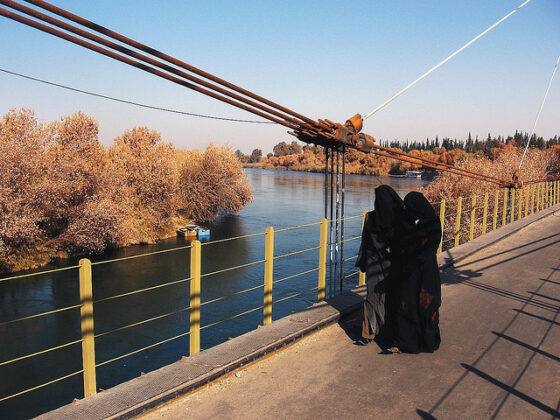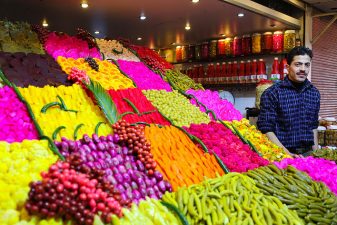 Syria’s livelihood is going down the drain. Unless the country learns to conserve, their future will be painfully dry.
Syria’s livelihood is going down the drain. Unless the country learns to conserve, their future will be painfully dry.
The Euphrates River, which meanders diagonally through the top quarter of Syrian territory, was once a source of agricultural bounty. Expatriates recall a time of lush plenty: orchards blooming with fruit, healthy cotton fields, and sparkling streams. Syria had it made with an agricultural surplus which could have easily sustained a healthy, vibrant population.
But then in the 1960s the Khabur River Project was developed to build a series of dams and canals, leading to excessive extraction. A culmination of that, a four year long drought exacerbated by rising temperatures, and old-fashioned bad management has dried up the Euphrates’ largest tributary, the Khabur River. Some are in denial, but scientists claim that unless the country learns how to stop wasting water, Syria faces a shriveled future.
What a waste!
Of the 80% of the country’s water resource allocated to agriculture, 70% is wasted. This waste is mostly attributed to antique irrigation methods. George Malaki Sawmi has replaced the former Irrigation Minister and is tasked with modernizing this system, according to The National.
But poor irrigation should not shoulder the entire blame. Swansea University water scientist Nidal Hilal suggests that all of society contributes to the waste responsible for the current water crisis.
“People are using water excessively,” he told the paper.
“The message of reduce, recycle and reuse needs to be heard in Syria, from the young people in schools right up to the highest authorities.”
At a Damascus conference addressing water use that concluded last week, scientists reported that between 2002 and 2008, water availability dropped from 1200 cubic meters to 750 cubic meters per person, according the The National.
Fleeing for greener pastures
“You can call it whatever you want, but as things stand, Syria doesn’t have enough water to meet its needs,” Ghassan Ejjeh – the conference chairman who is based in Brussels – told the paper.
“If they have 750 cubic metres a year, that’s a water crisis and it will quickly become something worse unless action is taken. Supplies dropped from 1,200 cubic metres to 750 very quickly and at that rate, there is going to be a real problem very soon.”
While the North Eastern province Hasika, where the Khabur River has run dry, has the fewest water resources, the historically fertile Jazeera region that provides much of the nation’s agriculture was hit by a drought that prompted food assistance from aid agencies.
According to the United Nations, 600,000 people have already fled.
Authorities have investigated grand schemes for pumping water from the west coast to Damascus, but Mr. Hilal shuns this solution.
“For now we should look to the water that is available and just use it better. That will go a long way to dealing with this matter,” he told the paper.
:: The National
More on water shortages:
Saudi Arabia’s Desalination Market A $50 Billion Opportunity
Ecowash M.E.: How To Wash Your Car In A Water-Parched Desert
Water Problems in Cyprus Worse Than Those of Israel, Syria and Lebanon
image via Ai@ce


